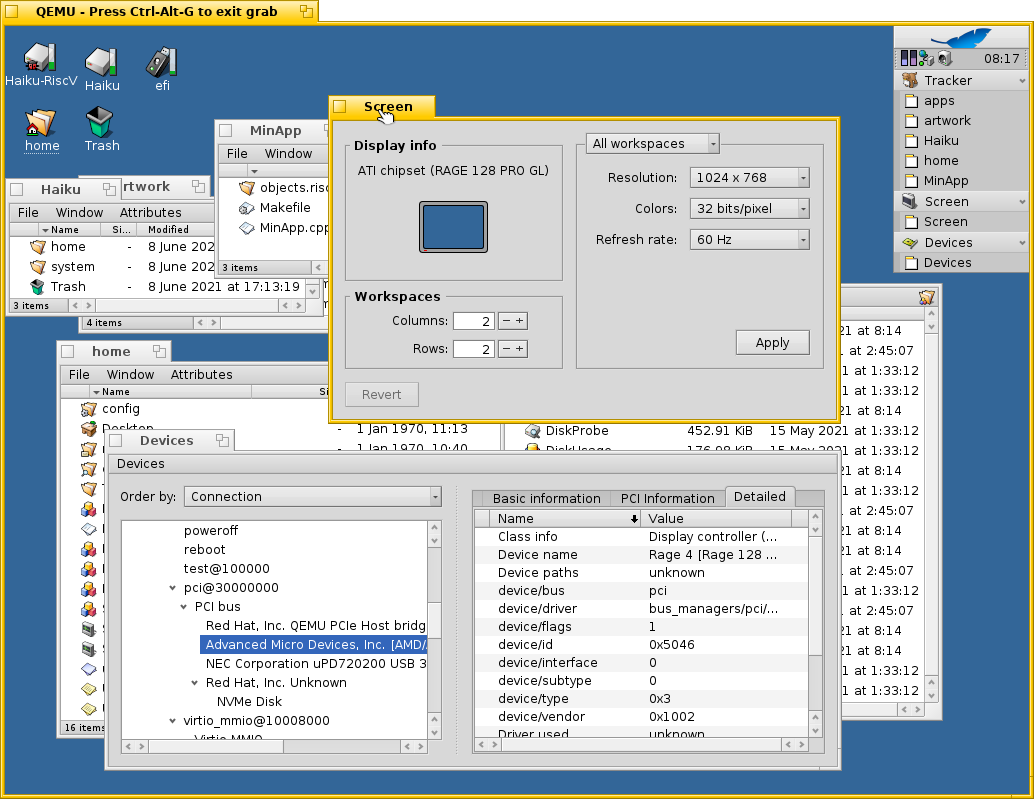ATI Rage 128 graphics card is working. Adding Rage128_SetDPMSMode(B_DPMS_ON); call was required because monitor is turned off by default. Resolution and bits per pixel change is working. I disabled ramfb driver so no graphics output is produced until app_server is started (on real hardware something similar will be likely occur because u-boot likely don’t have PCI graphics card drivers). Also I fixed a bug when kernel crash if no kernel framebuffer is provided.
